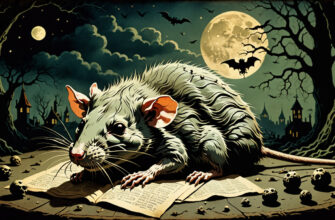Dreams where knives flash and flesh is pierced tap into some of our deepest emotional territories. These aren’t just random night plays; they reflect the way trust—even the basic faith we put in the people and systems around us—might be breaking down. Stabbing dreams come in two main flavors: either you’re the one doing the stabbing, or you’re the one getting stabbed. Both roles carry powerful emotional charges and speak to two sides of a personal or relational conflict. Whether it’s the acute sting of betrayed loyalty or simmering feelings of powerlessness, these dreams surface raw feelings that often slip past daytime awareness.
What Stabbing Dreams Mean At Their Core
When you wake from a stabbing dream, there’s often a lingering pulse of insecurity or fear in the chest. These dreams tend to resonate with themes of betrayal—maybe by a friend, partner, or colleague—or the vulnerability that exposure brings when defenses lower. That sharp break in trust can feel almost physical in the dream space, leaving a sense of raw wounds that haven’t quite healed.
You might notice anxiety creeping in alongside these dreams. The helplessness that comes from being “attacked” in sleep mirrors waking worries—like losing control over a situation or feeling powerless to protect what’s dear. If your dream shows you stabbing someone, it could mark internal conflicts where loyalty, anger, or the desire to assert boundaries boil beneath the surface.
It’s important to consider the split perspectives: being stabbed often points to feeling unsafe or having trust shattered, while stabbing someone might reveal a fight for control or unresolved anger. Both perspectives nudge us toward the same reflection: What trust or power dynamics are shifting in your life right now?
Psychological Layers Behind Stabbing Dreams
Stabbing in dreams often surfaces as a call to shadow work—a process of meeting parts of ourselves we prefer to keep hidden. Anger that’s been stuffed, loyalty dilemmas where doing what’s right for ourselves clashes with commitments to others, and even feelings of guilt might all come bubbling up. This is your unconscious mind working overtime to help you sort out tangled emotions around power, trust, and safety.
One of the emotional struggles behind these dreams is worry about control and personal boundaries. The knife cuts through not just flesh but through places where you might feel your limits have been breached. Your mind could be wrestling with fears about who or what is safe to keep close—and who or what needs to be let go. Letting go can be scary, especially when guilt rides along for the journey, but sometimes cutting ties without self-blame is exactly what’s needed.
Think of these dreams as mirrors asking where you might need to be fiercer—whether that’s standing up to someone or holding your own in a personal boundary that’s been crossed. They invite honest confrontation, not just with others, but with parts of yourself that want forgiveness. Guilt and self-forgiveness often fold together here, tangled but ready to be unraveled.
| Dream Element | Psychological Meaning |
|---|---|
| Being stabbed | Experiencing betrayal or violation of trust |
| Stabbing someone else | Assertion of boundaries or unresolved anger |
| Surviving a stabbing | Strength through hardship and resilience |
| Knife or dagger | Symbol of cutting ties or confronting pain |
| Fear or paralysis in dream | Feeling powerless or anxious about safety |
Spiritual Dimensions Of Stabbing Dreams
Beyond the surface emotional and psychological levels, stabbing dreams can point to energetic vulnerabilities. Sometimes, these dreams happen during moments when personal boundaries are thin or exposed, signaling a need to reclaim your space with fierce self-care rituals. On a spiritual level, the stabbing can be a metaphor for clearing out toxic energies, like cutting away what no longer serves your growth or well-being.
The subtle breach in your energy field can feel just as jarring as the dream itself, as if parts of your aura or spirit were left open to harm. Hearing the spiritual messages amid the dream’s sharpness takes patience and attention. Look for patterns or recurring themes, and deepen your connection with grounding and cleansing practices.
- Try grounding exercises to center your energy
- Use aura cleansing techniques, such as smudging or visualization
- Establish boundary rituals—whether physical, emotional, or spiritual—to protect yourself
- Listen to your body and intuition when these dreams arise; they often accompany real energetic shifts needing acknowledgment
These spiritual nudges don’t always come wrapped in softness. Sometimes, the pain points to your next step toward awakening or reclaiming power that’s been chipped away.
Types of Stabbing Dreams and What They Reveal
Ever wake up from a stabbing dream wondering what the heck just happened? These dreams land hard because they tap into places of pain, trust, and survival. When the dream shows someone being stabbed, it often mirrors feelings of victimization—like someone close betrayed you or you’re grappling with deep emotional wounds. But sometimes, the sting signals awakening—like your psyche urging you to recognize a boundary violation or call out toxic patterns in your life.
On the flip side, dreaming of wielding the knife reveals layers of anger or power. Are you trying to assert yourself or cut free from inner conflict? This act can speak to repressed rage, guilt around standing up for yourself, or wrestling with loyalty. Think of it as the dream showing you the tension between control and vulnerability.
When you’re witnessing stabbing—just an observer caught in the scene—the dream might be inviting you to notice emotional dynamics from a distance. Maybe you feel powerless in real life conflicts or are avoiding confronting tough feelings. Observing can highlight your role as a bystander or your own internal detachment from pain around you.
Recurring stabbing dreams call attention to wounds that keep reopening, whether from trauma or persistent signals that something remains unresolved. The dream repeats like a warning: listen closely to what your heart and gut are revealing. Constantly facing betrayal, fear, or conflict in dreams often parallels patterns of past or ongoing challenges needing care.
Where the stabbing happens—and who’s involved—matters too. If it’s someone close, like a lover or family member, the dream sharpens the focus on trust and intimacy issues. Conflict with a stranger, however, usually taps into anxiety around the unknown, feeling unsafe, or social fears. These subtleties offer clues for understanding which part of your emotional world is under siege.
Healing Through Stabbing Dream Insights
Those stabbing dreams? They aren’t just nightmares to ignore—they’re invitations to hold space for your pain with gentleness and courage. These dreams often come packed with survival stories beneath the surface, asking you to witness your own strength without judgment. Honoring your experience means accepting that being wounded doesn’t make you weak; it makes you human and capable of healing.
Dream insights help spot places where trust may have cracked or needs rebuilding. For example, dreaming of being stabbed by a close friend can nudge you to explore what broke down in that relationship or where your boundaries have been compromised. It’s less about blame and more about reclaiming power in those connections, whether through honest conversation or personal acceptance.
Reclaiming safety and power after these vivid dreams is crucial, and self-care becomes your frontline. Try:
- Grounding practices: Walk barefoot, breathe deeply, or sit in quiet reflection to feel anchored in your body.
- Setting clear boundaries: Politely yet firmly say no to what drains you or crosses your limits.
- Ritual cleansing: Smudge with sage, light candles, or create a sacred space that affirms your right to feel safe.
- Movement: Dance, stretch, or take a walk to shake off stagnant energy and invite flow.
Healing doesn’t demand erasing what happened—it asks for integration. Forgiving yourself and others can soften the edges of pain without sacrificing your sense of self-protection. It’s a radical balance: compassion that holds firm boundaries.
Journaling and rituals offer practical ways to process stabbing dream emotions. Here are some prompts to consider:
- Who in this dream represents a shadow part of myself?
- What emotions stay stuck after the stabbing—fear, anger, sadness?
- How do I want to protect or reclaim my power moving forward?
- What message or wisdom might this dream be trying to reveal?
Rituals, like writing a letter (unsent) to the person who stabbed you or creating a symbolic shield with crystals or herbs, can transform raw feelings into embodied healing. These acts help rewrite the dream’s narrative with resilience instead of despair.
Dreamwork Tools Aligned with Queer and Feminist Perspectives
Exploring stabbing dreams through a queer and feminist lens elevates the conversation around power, control, and survival. These dreams can speak to the collective experience of being othered, vulnerable, or marginalized in a world that often dismisses queer bodies and voices. They invite standing tall in self-knowledge and resistance.
Astrology offers a therapeutic edge to this dreamwork. Look at your Mars placements, the planet of conflict and assertion—how does it express your anger or power? Your Moon might reveal where you need emotional safety. Engaging with the cosmic weather report can deepen how you relate to these themes and help you find grounded timing for healing practices.
Affirm yourself: “You were born for this.” This mantra anchors the truth that tough feelings, and even dreams that shake you, are part of a larger journey toward radical resilience and self-knowledge.
Finally, inviting community is vital. Sharing dream experiences with others who understand vulnerability fosters collective care, reminding us all that self-protection and healing are never solitary journeys. Holding space together reframes these staking dreams as not just personal battles but shared calls for liberation and safety.








